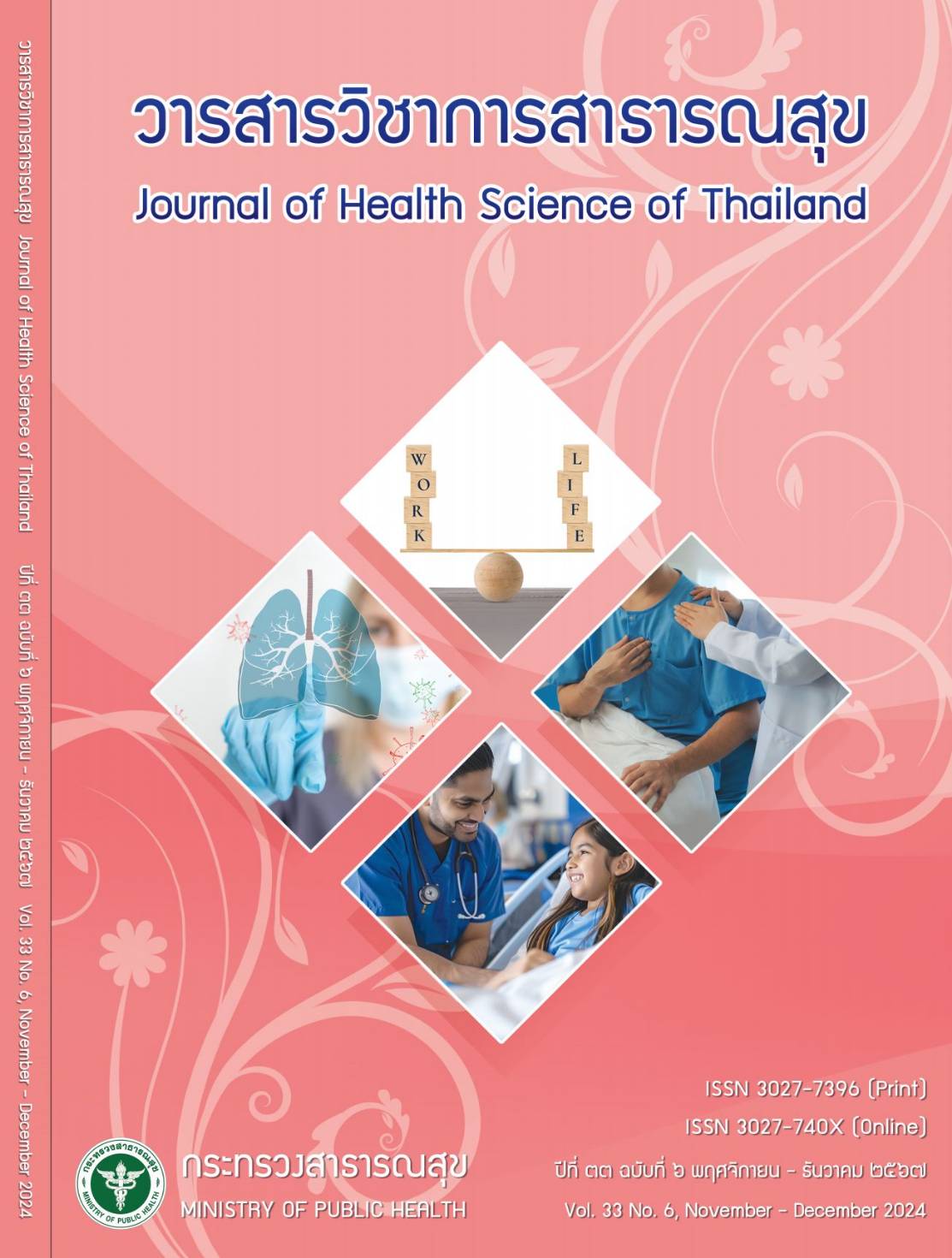Developing the Quality of Life for Informal Waste Workers in Developing Countries: Meta-Synthesis
Keywords:
quality of life, waste collectors, informal workers, developing countriesAbstract
This study aimed to synthesize the components of improving the quality of life of waste collectors,
informal workers, in developing countries by employing the meta-synthesis process following the
guidelines of Sandelowski and Barroso. Documents were retrieved from databases including Google
Scholar, PubMed, ScienceDirect, ThaiJo, and ThaiLis, published between 2014 and 2024, focusing on
the development of the quality of life of informal workers. Qualitative research studies were selected.
At each step, two researchers conducted the process, and in cases of disagreement, a third expert was
consulted to make the final decision. Key search terms were used to identify relevant studies, which were
then screened based on predefined criteria. The selected studies were critically appraised to assess their
methodological quality. Data were extracted from these studies and synthesized using an meta-synthesis.
The results showed that 14 research studies were selected from a total of 41,652 articles across 8
developing countries: Brazil, Thailand, Ethiopia, Colombia, Nicaragua, Kenya, Argentina, and India. The
findings revealed that waste collectors face challenges across multiple dimensions, including physical,
psychological, social, environmental, economic, legal, technological, and cultural aspects. Unsafe
working conditions adversely affected mental health, while community support helped mitigate risks. The
adoption of technology increasesd income opportunities, and a robust legal framework enhanced safety
and social security. Key measures included improving workplace safety, enacting laws to protect informal
workers, promoting cooperative organizations, developing advanced technology training systems, and
providing accessible healthcare services. These actions are critical to sustainably improving the quality of
life for waste collectors.
Downloads
Downloads
Published
How to Cite
Issue
Section
License
Copyright (c) 2024 Ministry of Public Health

This work is licensed under a Creative Commons Attribution-NonCommercial-NoDerivatives 4.0 International License.







